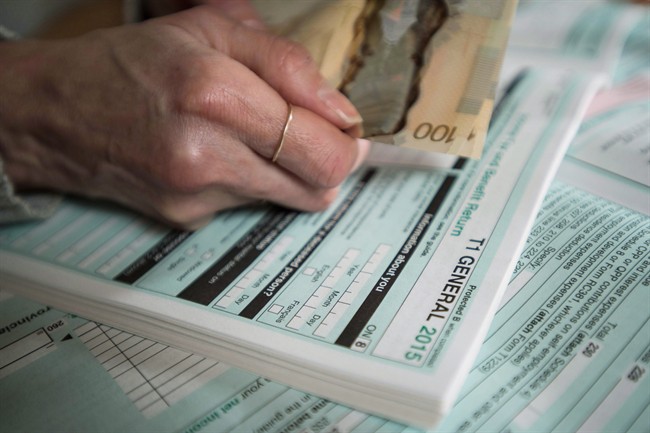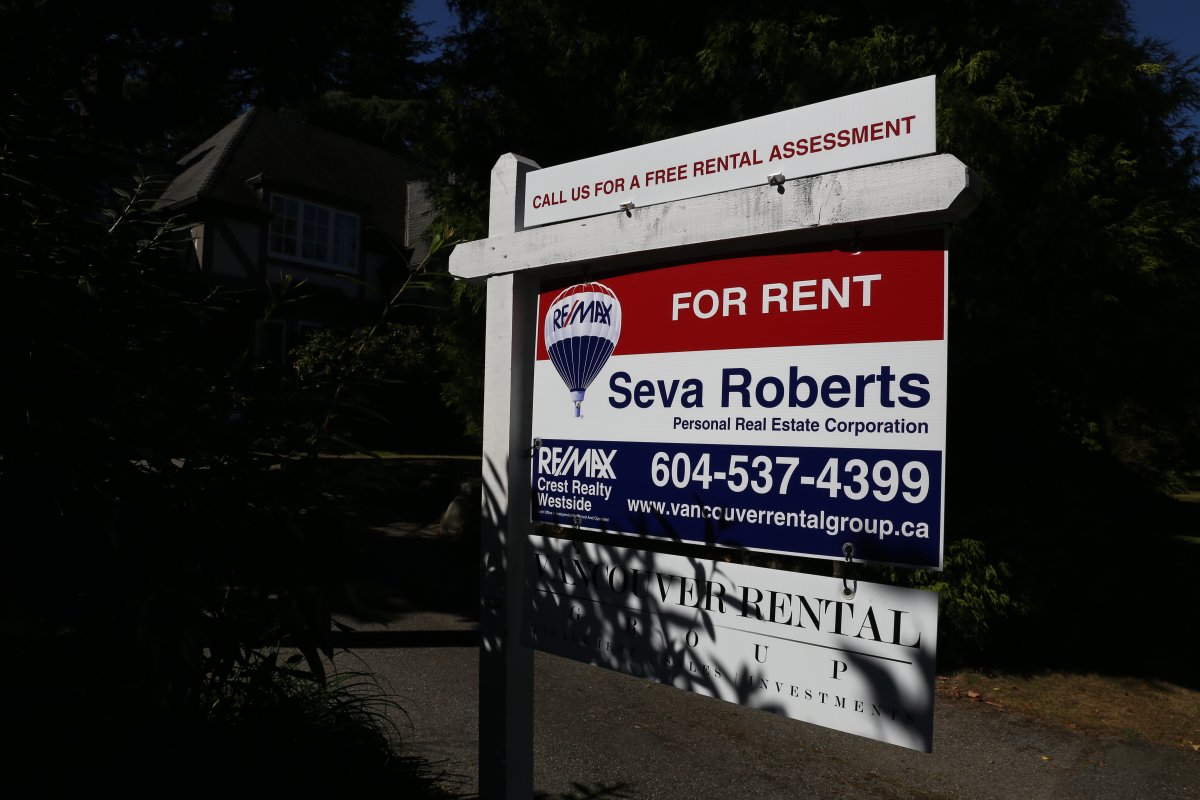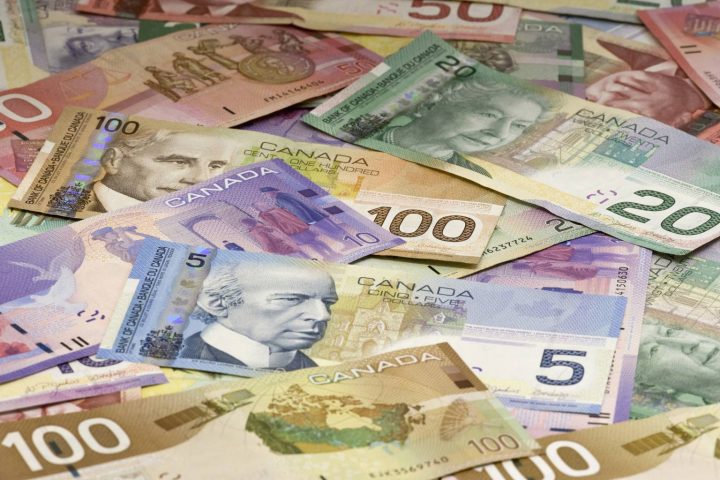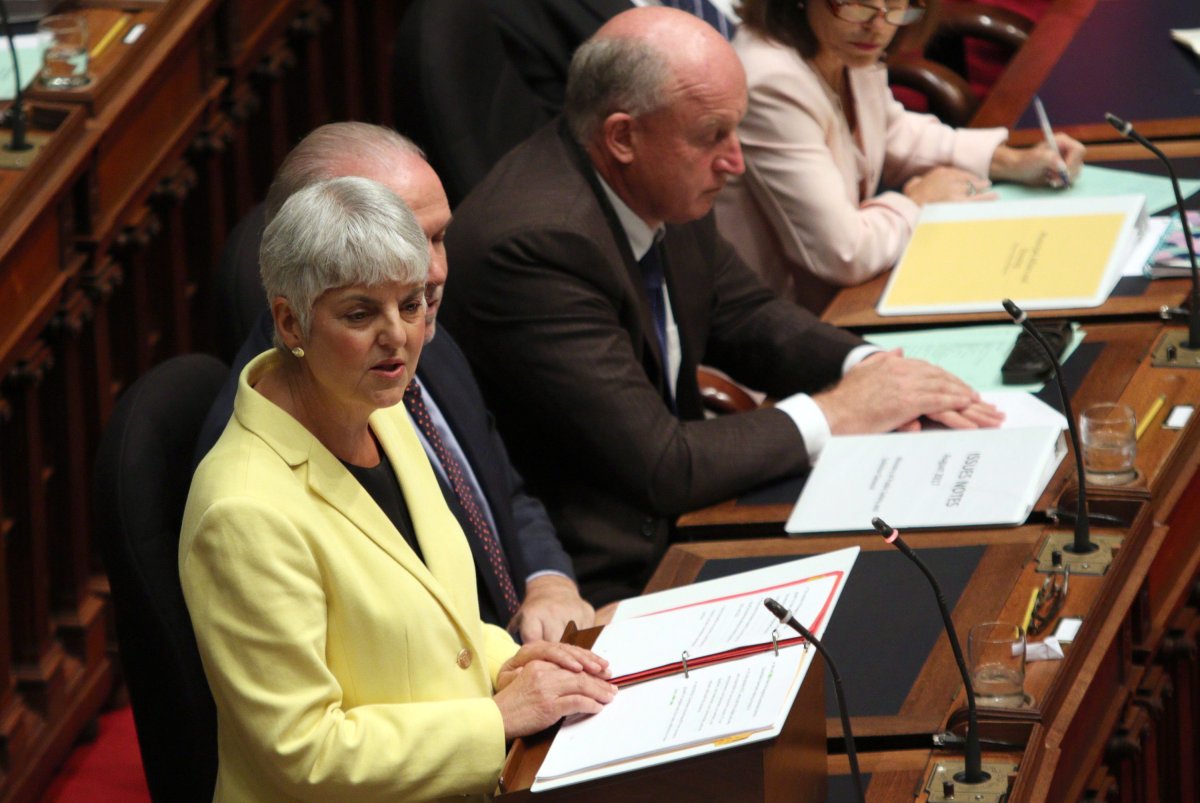The BC NDP government’s budget update was unveiled on Monday, and reaction has poured in swiftly.

B.C.’s business community has been particularly prominent among stakeholders who had plenty to say about Monday’s announcement.
WATCH: Keith Baldrey on NDP budget update

The budget update had several items with implications for business.
They included increasing personal income taxes on people who make income of over $150,000, from 14.7 per cent to 16.8 per cent.
They also included an increase in the general corporate income tax from 11 per cent to 12 per cent and a reduction in the small business corporate income tax from 2.5 per cent to two per cent.
READ MORE: B.C. budget: NDP releases first budget update
Reactions from business advocates varied, but there were a few matters that concerned them.
Here’s how business responded to the NDP’s budget update:
The cost of MSP premiums is ‘effectively’ being transferred to businesses: Greater Vancouver Board of Trade
The Greater Vancouver Board of Trade (GVBOT) took issue with an increase in the carbon tax by $5 per tonne of equivalent CO2 equivalent emissions, taking away its revenue-neutral status and using money raised by the tax to pay for a 50 per cent reduction in MSP premiums.
In a statement, the board of trade noted that the carbon tax is “predominantly paid by the business community,” and that “this is effectively just transferring the source of payment on to business.”
However Lindsay Tedds, an economics professor at the University of Victoria (UVic), was “marginally perplexed” by that statement.
She said the reduction in MSP premiums is being paid for out of the province’s surplus, and that everyone is paying the carbon tax.
Tedds also noted that businesses could benefit from the budget update’s elimination of the provincial sales tax (PST) on electricity, “which predominantly benefits the business community.”
“This is a budget that is give and take for everybody,” she said.
What about $10-per-day child care?
The GVBOT was also concerned that NDP election promises such as $10-per-day child care went “unfunded and unannounced.”
Tedds had a response for that, too.
She said $10-per-day childcare was “fully costed” in the NDP’s platform on a “four-year horizon.”
“Daycare is always a 10-year rollout,” Tedds told Global News.
“No one costs their platform over 10 years.”
Or the $400 renters’ rebate?
The GVBOT was similarly worried about the promised $400 renters’ rebate going “unfunded and unannounced.”
Tedds was less concerned, however.
She said the rebate would cost about $280 million, while the B.C. Home Owner Grant, which gives homeowners a break on their property taxes, costs “well over $800 million” — and has been subject to a “high amount of fraud.”
Tedds drew attention to a line item in the budget that allows for information sharing between B.C.’s Income Tax Act and the Home Owner Grant Act which, she hoped, would mean that the provincial government could accrue back revenues that have inappropriately claimed through the grant.
“We’ll be able to find individuals who are earning renter income and not claiming it for tax purposes,” she said.
The renters’ rebate, she said, could potentially be paid for through tax compliance.
Bridge tolls
The board of trade raised a red flag about “material expenditures missing from the operating budgets going forward.”
That included the “Golden Ears bridge toll fees removal in year two and beyond,” and the “one-third replacement cost of the Pattullo Bridge (which was to be funded by tolls).”
The cost of doing business in B.C. has shot up by $3 billion: B.C. Business Council
Doing business in B.C. is not cheap, if you ask the B.C. Business Council.
In a news release, chief policy officer Jock Finlayson said that the cost of doing business in B.C. has grown by approximately $3 billion in the past three or four years, and the latest budget update doesn’t help with that.
The increased cost of doing business has come about due to a number of factors, including “higher electricity prices, the return of the PST, increased and more complex regulatory requirements and other trends.”
The budget update exacerbated that cost through higher corporate and income taxes, he said.
Higher income taxes at a time when taxes are a ‘leaky sieve’: economist

The GVBOT is concerned about increasing tax rates for people who make over $150,000 — an increase that could affect “management and professional-earning levels.”
Tedds also had concerns about raising income taxes for a number of reasons.
One of them was that B.C. has a “significant problem with tax compliance,” she said.
The other is the “fudge factor”: the fact that B.C. has money put aside, and is raising taxes at the same time.
Tedds noted that the budget forecasts a $246-million surplus in 2017-18. And on top of that, it sets aside a $300-million forecast allowance and a $600-million contingency balance, money that could be used on unexpected expenses.
“So that’s $1.15 billion of money that is just there, not being spent, and they’re raising taxes,” she said.
“It doesn’t make sense to be booking that level of revenue that you’re not spending.”
Tax competitiveness
Meanwhile, the B.C. Chamber of Commerce is worried that the corporate and carbon tax increases could affect the province’s tax competitiveness when tax changes are happening at the federal level.
The federal Liberal government has proposed changes that would do away with tax incentives that Prime Minister Justin Trudeau claims only affect affluent small business owners.
Trudeau has said he will “make no apologies” for the changes, which he said are aimed at making the tax system more fair.
The changes include stopping a practice that permits business owners to reduce their tax rates by spreading their income to family members, even when they don’t work for the businesses.
- With files from The Canadian Press










Comments